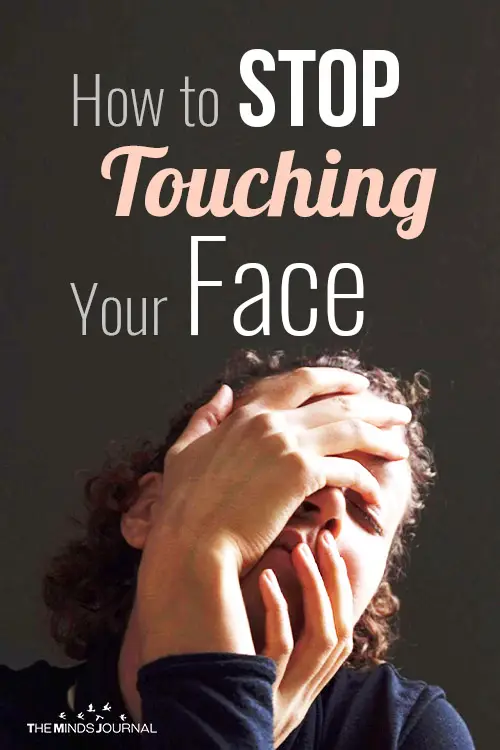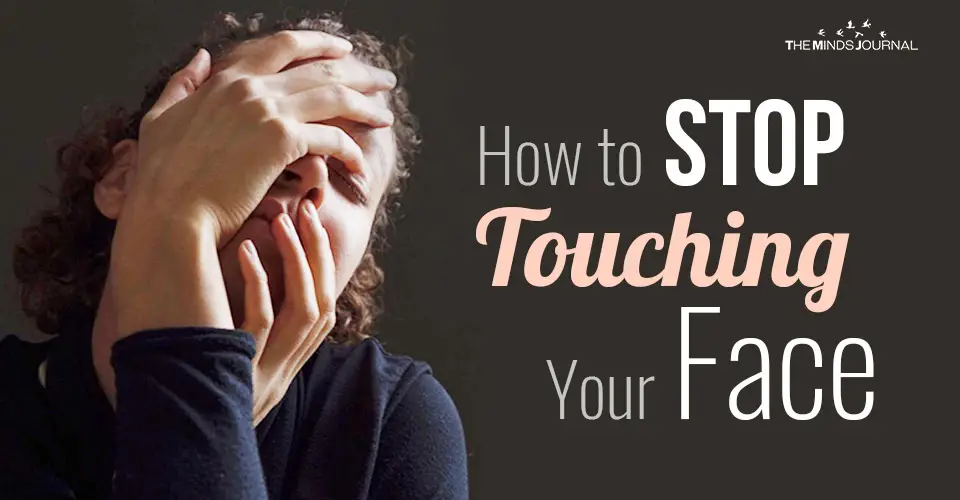In this era of COVID-19 you have a hard time avoiding advice about washing your hands frequently and avoiding touching your face. As a public health matter, it is clearly good advice. I’m all for both of these things.
Related: The Science Behind Mass Panic and How To Stay Sane During Coronavirus Outbreak
As a psychologist, however, I can tell you that “good advice” is one of the weakest forms of behavior change known to science. Any parent reading this blog realizes that, of course.
Let me reconfirm the obvious: just telling people what to do is often useless. And that is especially true when the advice has to do with mindless, habitual actions, like biting your nails; saying “you know”; leaving the toilet seat up; or, well, touching your face.
Let’s start with some facts.
People touch their face. A lot. I mean a lot, a lot. I mean nearly constantly.
I should know. I’m one of a small number of scientists who ever seriously studied it.
Over 40 years ago, I did a series of studies on face-touching with a professor of mine, Norm Cavior, and then particularly with my new colleague at the University of North Carolina, Greensboro, Rosemery O. Nelson. We wanted to study how behavior changed if and when you self-monitored it. What was needed was an action that occurred regularly, was easy to see from across the room, and that was viewed as being slightly negative when it was pointed out, so there would be some motivation to change it.
Face-touching ticked all of these boxes.
When we recorded how often people touch their face when they don’t know they are being observed it came in at .5 to 3 times a minute, depending on the task.
Do the math. That means if we are awake for 16 hours, we touch our faces hundreds or even thousands of times a day!
Most of us are a little embarrassed when our face-touching is pointed out. It seems slightly self-focused (there is some truth to that). It can include things that are gross, like nose-picking, finger sucking, or nail-biting. And yes, health-wise, it is actually not a great thing to do. It can contribute to skin problems, and germs can hitchhike to the inside of our bodies through our eyes, nose, or mouth.
We do it anyway.
So how can we change it?
One method that we found works is impossible to apply: You can remind people constantly. In one of our studies, we got face-touching to go down if we reminded people every minute or two not to do it. There are two problems: first, other than your mother, who the heck would do that? Second, after a day or two of that you’d be ready to slap someone.
We did, however, find a practical method that reduced it by 65 to 95%. In our research, this method worked short term or long term – as long as you applied it, there was no fall off.
Related video:
So what is the trick?
Get a prominent device and measure your face-touching.
Count the touches. It does not matter what the device is as long as it is easily visible, you can carry it with you, and you are willing to use it. It could be a golf counter, a sheet of graph paper, or the lap timer on your smartphone. Just religiously record every single time you touch your face and within minutes it will drop to a rate low enough that you can keep track of it for a long time without disruption.
Related: Self-Isolating for Coronavirus: Here’s How to Make The Most Of It
Just take a look at the following figure from one of our studies:

When the participants in our study were not counting, they mindlessly touched their faces whenever the urge came up, leading to a lot of face-touching (about a dozen times every five minutes). However, as soon as we instructed them to start counting, face-touching went down dramatically. Moreover, touches stayed low as long as people continued to count, even if counting went on for up to 9 weeks! (for more information on this study, click here).
Additional research showed there’s a good reason why the device with which you count should be prominent: its very presence soon reminds you not to touch your face.
And it turns out that counting works even if you are not all that accurate – just the effort to track it honestly creates the effect.
No, counting is not a “one and done” cure for the face-touching habit: as soon as the participants stopped counting, they returned to touching their face just as frequently as before. Thus, in order to continue benefiting from this method, you need to continue using it.
I never thought this research would be directly useful – it was just “a preparation” (as scientists say) to study the reactivity of self-assessment. To be honest, I haven’t thought about this research in many years. But COVID-19 has changed a lot of things, and here I am, sitting in my easy chair sheltered in place in my house, with my graph paper next to me, chronic face-toucher that I am.
One …………… two ……………………. uh oh, threeee ………….

Written by Steven C. Hayes
Originally appeared in Steven C. Hayes, Ph.d
Check out my TEDx talks: http://bit.ly/StevesFirstTED or http://bit.ly/StevesSecondTED
Google Scholar high impact researcher: http://www.webometrics.info/en/node/58
For information on my trainings, go to www.praxiscet.com


Leave a Reply
You must be logged in to post a comment.